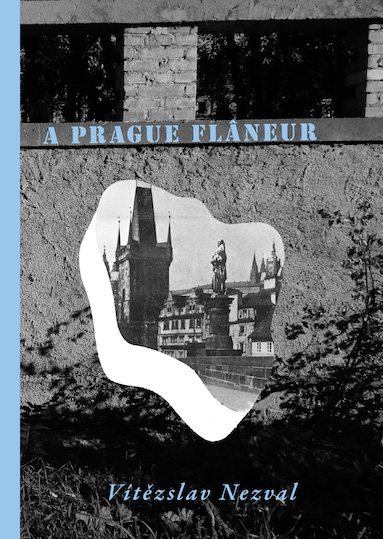 What an amazing collection. The best advice I can give a potential reader: pour a cup of coffee or a glass of wine, or even better, both, sit in a dark room with only one light on to illuminate the pages, and sit in the most comfortable chair you have. Prepare to stay awhile. You won’t want to stop.
What an amazing collection. The best advice I can give a potential reader: pour a cup of coffee or a glass of wine, or even better, both, sit in a dark room with only one light on to illuminate the pages, and sit in the most comfortable chair you have. Prepare to stay awhile. You won’t want to stop.
A review of Down River with Li Po by Karen Pierce Gonzalez
 Engaging the emotions that emanate through Li Po’s work, and with delicate strokes, Gonzalez packs maximum impact into snapshots of the natural world. ‘Pink yarrow garden’ and ‘patchwork planets’. Traversing the rural and the urban, the seen and the suggested. Lotus flowers, urban streets and vast mountains.
Engaging the emotions that emanate through Li Po’s work, and with delicate strokes, Gonzalez packs maximum impact into snapshots of the natural world. ‘Pink yarrow garden’ and ‘patchwork planets’. Traversing the rural and the urban, the seen and the suggested. Lotus flowers, urban streets and vast mountains.
A review of Temporary Beast by Joanna Solfrian
 The eclectic mix of suburban memories and contemporary city scenes, meditations on motherhood, poignant encounters interspersed with a shorter clip of found poetry; ars poetica adds levity before Temporary Beast resurfaces in longer form poems delving primarily into the specificity of memories. Her sister crashes the Camry outside the family home, the names of neighbors and the local pharmacist meander Solfrian’s poems and emotions surrounding her mother’s death.
The eclectic mix of suburban memories and contemporary city scenes, meditations on motherhood, poignant encounters interspersed with a shorter clip of found poetry; ars poetica adds levity before Temporary Beast resurfaces in longer form poems delving primarily into the specificity of memories. Her sister crashes the Camry outside the family home, the names of neighbors and the local pharmacist meander Solfrian’s poems and emotions surrounding her mother’s death.
A Review of Nervosities by John Madera
 Madera’s book emphasizes a different kind of narrative pilgrim. Instead of a traveler headed out in search of a story, as Phil Cousineau writes in The Art of Pilgrimage: the journey “as nature’s pattern of regeneration, a journey consisting of departure, arrival, and return,” Madera’s narrators grapple with a perpetual sense of being adrift and often exhausted and burnt by the post-industrial world. These stories are about diasporas, transformations, fragmentations, and layers of meaning.
Madera’s book emphasizes a different kind of narrative pilgrim. Instead of a traveler headed out in search of a story, as Phil Cousineau writes in The Art of Pilgrimage: the journey “as nature’s pattern of regeneration, a journey consisting of departure, arrival, and return,” Madera’s narrators grapple with a perpetual sense of being adrift and often exhausted and burnt by the post-industrial world. These stories are about diasporas, transformations, fragmentations, and layers of meaning.
Invisible Strings: 113 Poets Respond to the Songs of Taylor Swift Edited by Kristie Frederick Daugherty
 The poem diverges from the wistful, reflective joy of the wedding to the speaker’s own more volatile personal history, contrasting the innocence of the little girl singing karaoke and her own “vanilla ice cream” sweet girlhood. The speaker’s “I” creates a new emotional tenor for the poem, and the use of polysyndeton to connect clauses blurs time, creating one rich, expansive moment that contains the feelings of the speaker’s past, the reality of her present, the little girl’s identification, and Swift’s artistic influence, not to mention the reader’s own emotional resonance with the poem itself.
The poem diverges from the wistful, reflective joy of the wedding to the speaker’s own more volatile personal history, contrasting the innocence of the little girl singing karaoke and her own “vanilla ice cream” sweet girlhood. The speaker’s “I” creates a new emotional tenor for the poem, and the use of polysyndeton to connect clauses blurs time, creating one rich, expansive moment that contains the feelings of the speaker’s past, the reality of her present, the little girl’s identification, and Swift’s artistic influence, not to mention the reader’s own emotional resonance with the poem itself.
A review of One Little Goat by Dara Horn and Theo Ellsworth
 This collaboration with Theo Ellsworth is unique. Ellsworth’s style is reminiscent of R. Crumb, the underground comics pioneer whose iconic black-and-white cross-hatching and the exaggerated features of his character are instantly recognizable. Combined with Dara Horn’s erudition, the comic book style makes the ancient story seem somehow more relevant and more subversive.
This collaboration with Theo Ellsworth is unique. Ellsworth’s style is reminiscent of R. Crumb, the underground comics pioneer whose iconic black-and-white cross-hatching and the exaggerated features of his character are instantly recognizable. Combined with Dara Horn’s erudition, the comic book style makes the ancient story seem somehow more relevant and more subversive.
An interview with Joshua Vigil
 The author of Bastardland talks about his latest book, his writing habits, the satisfaction of writing, social media, on unsettling a reader, the joys of publication, and more.
The author of Bastardland talks about his latest book, his writing habits, the satisfaction of writing, social media, on unsettling a reader, the joys of publication, and more.
A review of A Prague Flâneur by Vítězslav Nezval
 The streets, bridges, buildings, and cafés “where Prague lives” provide a wealth of stimuli to which Nezval responds with a catalogue of memories. His Prague is like the site of an archaeological dig whose layers expose various periods of personal history. It also is the site of shops whose windows display goods that take on hallucinatory appearances, and the setting for chance meetings with strange characters and events that touch on the uncanny.
The streets, bridges, buildings, and cafés “where Prague lives” provide a wealth of stimuli to which Nezval responds with a catalogue of memories. His Prague is like the site of an archaeological dig whose layers expose various periods of personal history. It also is the site of shops whose windows display goods that take on hallucinatory appearances, and the setting for chance meetings with strange characters and events that touch on the uncanny.
A review of Informed by Alison Stone
 The poems are raw and pull the curtains back to reveal intimate family dynamics and heartbreak. Death was real and claimed a young neighbor and she wonders about an afterlife and “starved myself to safety, transcendence”. With no real example of how to live, she had to “transcend”, “starve”, develop an eating disorder as a way to survive the death and destruction around her that was felt and yet hidden, unspoken, unacknowledged: “under tablecloths,/the makeup”, stashed in the “trunk of a new car”.
The poems are raw and pull the curtains back to reveal intimate family dynamics and heartbreak. Death was real and claimed a young neighbor and she wonders about an afterlife and “starved myself to safety, transcendence”. With no real example of how to live, she had to “transcend”, “starve”, develop an eating disorder as a way to survive the death and destruction around her that was felt and yet hidden, unspoken, unacknowledged: “under tablecloths,/the makeup”, stashed in the “trunk of a new car”.
The Art of Connections: Mira Nair’s Monsoon Wedding (2001) & Other Wedding Movies
 Hemant has a groom’s procession, arriving on a horse; and, of course, the bride is beautiful. It rains, torrential rain (the monsoon that follows summer)—and a long-awaited young man arrives, Umang (Jas Arora), and exchanges glances with Ria. The rain further washes away formality and pretense. Everybody dances.
Hemant has a groom’s procession, arriving on a horse; and, of course, the bride is beautiful. It rains, torrential rain (the monsoon that follows summer)—and a long-awaited young man arrives, Umang (Jas Arora), and exchanges glances with Ria. The rain further washes away formality and pretense. Everybody dances.